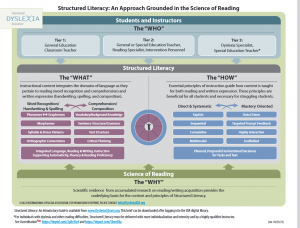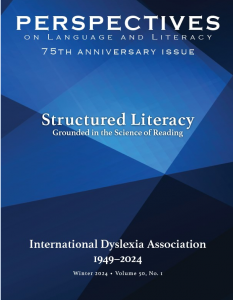IEP/School Meeting Update
The IEP/school discussion document on DEB is still relevant today.
Still, it will need to be updated for 2025 with the changes to the curriculum and the way we teach literacy in 2025.
I am starting a draft version of an updated IEP/ School Discussion document, which I will continue to update as we learn more about the support and funding options available for children who need individualised/ Tier 3 support in the coming months.
I want to acknowledge there will be a grace period for teachers and schools as they adjust, especially if this is the first year the school is teaching a Structured Literacy approach(es). I have put (es) in brackets as this is an MOE term introduced for a particular narrative. DEB recommends the International Dyslexia Association (IDA) Structured Literacy approach framework as this framework has our dyslexic children and others who struggle at the heart of its framework. It also has all three levels of support and is based on the Science of Reading and Learning Research.
IDA Information map on its Framework

This publication by the IDA offers invaluable insights into Structured Literacy, a crucial aspect of modern literacy instruction. Within its pages, readers will find contributions from leading experts in the field, providing comprehensive perspectives on the importance and practical application of Structured Literacy instruction.

https://dyslexialibrary.org/perspectives-75th-anniversary-edition/
The new curriculum now provides more guidance on what should be covered each year your child/student is in school. This is important to note for our children who have dyslexia and/or other challenges. These guidelines may not be suitable goals for the year your child/student is in right now. Please use these as a reference or a scope sequence right now to understand what goals can be set and what goals you are working towards.
Let’s move on to what questions we need to consider if you have concerns about your child or student and would like to meet with the teacher or the parent to work together to support your child or student.
This is where the detective work comes in, and you need to start gathering information to help provide solutions. This can only be done by asking questions and assessing your child or student. When gathering information, some assessments will be teacher judgement/knowledge, and some will be official school assessments.
Consider –
- What scope and sequence is the school using, can it be slowed down for the children who need a slower pace to build automaticity?
- What assessments have been completed, and what information can we get from them? Parents, you can ask for a copy of your child’s assessments before a meeting. I recommend you do this; everyone is Working with the same information and can work together to provide solutions.
Here is a list of assessments that might be completed by the classroom teacher or the intervention teacher that align with the new curriculum. Not all children will need all the assessments, but many will need most if they have been taught balanced literacy in their foundation years. This list of assessments is not listed by a company name but by skill, as every school currently uses different assessments.
- Grapheme to Phoneme could be listed as Symbol to Sound or Letter to Sound ( hearing and writing letters and sounds )to see an example you can view one here – free Literacy DEB assessments here
- Letter naming and writing capital letters. To see an example of what this might look like, you can check the basic free Literacy DEB assessments here –
- Phonemic awareness may be listed under phonological awareness to see an example of what this might look like, you can check the basic free Literacy DEB assessments here –
- Oral language assessment – Teacher judgment will play a significant role here in how the child communicates using language in class and how they can comprehend the tasks in the classroom. To see an example of what this might look like, you can check these Universally Speaking oral language Checkists
- Spelling assessment, or it may be referenced as an encoding assessment that is used, will depend on the scope and sequence, and the school’s decodable books that they use. To see an example of what this might look like, you can check the basic free Literacy DEB assessments here –
- Reading or decoding assessment will again depend on the school’s scope and sequence, and also your child’s age may determine what assessment is used. The new phonics check will be used in foundation years 0-3. I need to see it before knowing if it will be appropriate for older children. To see an example of what this might look like, you can check the basic free Literacy DEB assessments here –
- Irregular words or Heart Words, and in research, they are often called sight words (not to confuse this term with the essential lists). Again, the school’s scope and sequence, as well as the decodable books they use, will determine what these words will be. You can see an example of the words on the reading assessment on DEB here free Literacy DEB assessments here
- Fluency is another assessment schools will be using to assess how easily your child or students reads using tone and accuracy – You can find information on DEB under Oral Reading
- Vocabulary – at the moment, I am not sure how schools are assessing this in official assessments. Still, teacher judgment under oral language assessment will play a role in gathering information. – ‘What is vocabulary/background knowledge?’ will help build your understanding of this skill.
- Comprehension – It is essential to understand there are two types of comprehension: reading information and being asked information to check understanding ( which is where dyslexic children struggle) and listening comprehension when you listen to the information and are asked questions to check understanding. If there is no language challenge, dyslexic children will generally do well with listening comprehension assessments. If they don’t, it provides information that you need to look further and check for language or/and vocabulary challenges.I understand all schools will be using the e-asttle next year, and this assessment provides a Stanine Score, but I need to know what is assessed before I can comment.
- Writing can be assessed by writing a sentence or paragraph. Your child or student’s writing can provide a lot of information about what skills the child may have or what needs to be taught, especially if they can spell the words in isolation but not in their writing. Or after two sentences, the punctuation goes or the letter formation changes.Again, I understand all schools will be using the e-asttle next year, and this assessment provides a Stanine Score, but I need to know what is assessed before I can comment.
- One other assessment that is important for kids is math vocabulary; we know reading is challenging, but different terms used for the same equation can often be even more difficult for a child who is struggling with reading and comprehending, which makes word problems a nightmare.I am looking for a good Math Vocabulary check sheet to link, if anyone knows of one, please let me know.
As schools make this transition, it is essential we all understand for schools to embed structured literacy and do it well, and for it to be truly successful, it will take at least 3-5 years, if not more, depending on the training, funding, and resources the ministry provides schools. Until this happens, parents where they can should be taking an active role in supporting the teacher and, if the child allows it, working with them at home. REVIEW is your child’s or student’s best friend.
This is just a draft document, more information will be added. I wanted to release it now because I know many schools and teachers are already teaching Structured Literacy and the end-of-school reports are due out soon. These questions may help you understand some of the information you are giving or providing plus it might provide you the knowledge to know what assessments to ask for to start building a student profile for your student or child next year.
Document created by Sharon Scurr on the 9th of November 2024